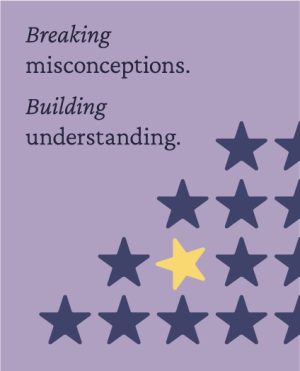
It’s a time for us to honor neurodiversity, challenge outdated norms, and work together to create a more inclusive society. For Craig Zucker, Executive Vice President and Chief Strategy Officer at Service Coordination Inc. (SCI), this mission is personal.
Craig reflects on his experience as a family member of a person with autism and how that has shaped his worldview, leadership style, and commitment to removing barriers for others.
KF: Craig, what does Autism Acceptance Month mean to you personally?
CZ: It’s about honoring the gifts that come with difference. Having a family member on the autism spectrum has been one of the greatest blessings in my life. It’s allowed me to see the world through an entirely different lens—one that’s often more honest, more curious, and more open.
Acceptance isn’t just about knowing autism exists—it’s about appreciating the humanity, the brilliance, and the limitless potential in people who experience the world differently.
KF: You’ve said before that acceptance alone isn’t enough. Can you share more about that?
CZ: Acceptance can mean we know people with autism are different. But acceptance also means leaning in, asking questions, and actually embracing those differences. As humans, we tend to gravitate toward what we know and label anything unfamiliar as “abnormal.” That’s not just an autism issue—it’s a human one.
What gives me hope is seeing how shared experiences change people. You don’t always have to live something yourself to understand it—you just have to witness it, be open to it. That’s how empathy grows.
KF: Why do you think our society struggles so much with the concept of “normal”?
CZ: Because it’s easier. We create boxes and definitions so we can make sense of a complex world. But when someone’s behavior, speech, or way of connecting doesn’t fit inside those boxes, we treat it like a problem instead of a possibility.
I think about a story a religious leader once told me: A boy is walking along the beach throwing starfish back into the ocean. A man tells him, “There are thousands, you can’t save them all.” And the boy replies as he saves the life of another starfish that he throws into the ocean, “But I made a difference for that one.” That’s what this work is. That’s what SCI does.
KF: What are some common misconceptions you hear about autism?
CZ: That people with autism are limited. That they can’t contribute meaningfully to society. None of that is true. Every person is unique and you can’t put someone in a box and assign limitations based on a label.
At SCI, we build a culture that sees possibility. We champion people’s independence, their talents, and their right to live a life of dignity and self-direction.
KF: How has your personal experience shaped your leadership at SCI?
CZ: It’s made everything more personal—and more urgent. When I advocate for someone’s rights, I’m thinking about my own family. When we work on policies or partnerships, I know there’s another parent out there hoping for the same things: opportunity, support, and a community that sees their child’s worth.
Working at SCI gives me a platform to help others live freely and fully. It’s not just about serving individuals—it’s about serving whole families and leading by example.
KF: What would you say to someone just beginning their autism journey—whether they’re a parent, teacher, or ally?
CZ: Focus on the superpowers, not the labels. Every person has one—it might be memory, creativity, honesty, problem-solving. Listen closely and you’ll find it.
There will be challenges, but also immense joy. And you are not alone. Organizations like SCI exist to walk beside you. Our Service Coordinators don’t just navigate systems—they help people find their voice, their power, their path forward.
KF: Since Autism Acceptance Month falls in spring—a season of possibility—what gives you hope for the future?
CZ: I think about how far we’ve come. My autistic family members have more opportunities today than they would’ve had 20 years ago. And I believe tomorrow will be better than today.
The more we embrace people for their differences the more we build a more just, fair and accepting world.
Autism Acceptance Month reminds us of a simple truth: differences must be embraced. At SCI, we’re proud to stand with people of all abilities—and to help build communities where every individual is empowered to reach their highest potential.
Let’s be the ones who choose understanding. Let’s be the ones who strive to make a difference—even if it’s one person at a time.
Craig Zucker is Chief Strategy Officer at Service Coordination, Inc. (SCI), where he leads the Strategy Center of Excellence.